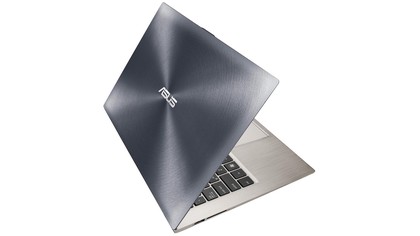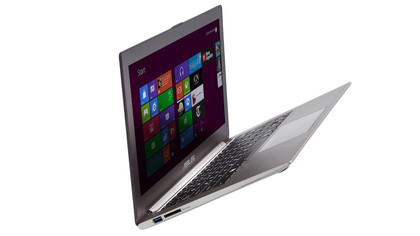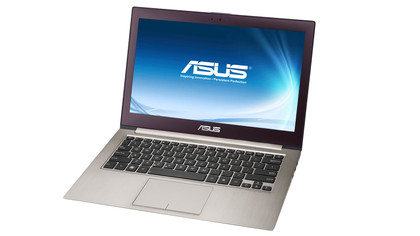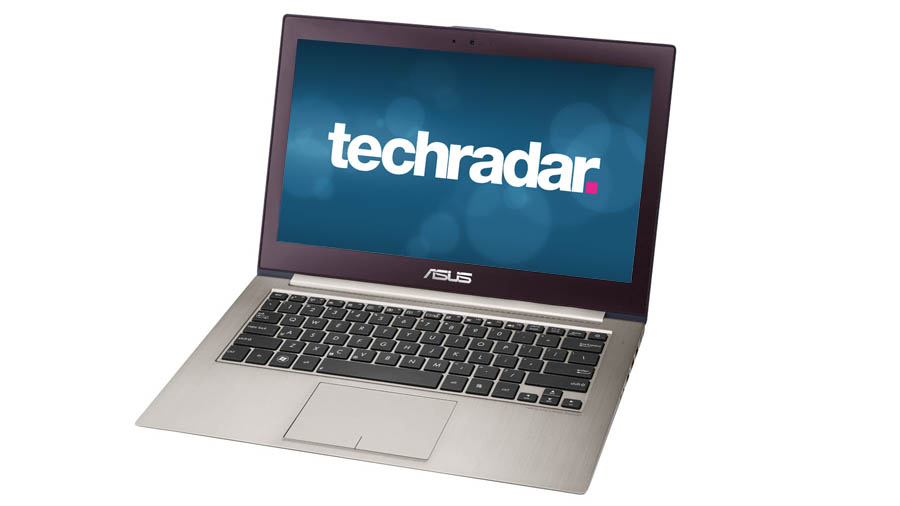Why you can trust TechRadar
Benchmarks
Cinebench 10: 10729
3D Mark 06: 5330
Battery Eater 05: 144 minutes
It's easy to pick out the best part of the Asus Zenbook Prime UX31A - that screen is excellent. It's reasonably bright, with appealing, natural colours - but as you might expect, it's the resolution that's the killer.
The 1080p screen is extremely crisp and detailed for the display size - you'll almost certainly want to turn the text scaling up in Windows, or you'll find yourself edging increasingly closer to the screen while you work, as we did.
And, yes, movies look very good indeed on the 1080p screen. The contrast ratio is good, motion is handled well, and there's plenty of detail in everything.
The viewing angles are excellent as well, and it's nice and bright, keeping everything clear.

Going beyond the screen, the Asus Zenbook Prime is no slouch when it comes to Ultrabook performance. The 1.9GHz Ivy Bridge CPU offers up impressive Cinebench results, even compared with many of its competitors using the same processor.
The result is that it comes across as plenty powerful for multitasking, as long as you stick to standard Ultrabook stuff - you won't exactly be rendering Pixar's next movie on it.
That's compounded by the 4GB of RAM - it's nice, fast RAM, but anyone hoping to do significant video editing or similarly intensive tasks will probably find it constricting.
For just about all home computing use, though, the Asus Zenbook Prime UX31A is extremely responsive, and works its way through most tasks with ease. It runs the 64-bit version of Windows 7, too, so is really eking the most out of its Core i7 chip.

No small part of that speed comes from the SSD, of course. The Asus Zenbook Prime UX31A can turn on in just a few seconds, and resumes much faster even than that - we're talking just a couple of seconds, if that. This has always been the goal of Ultrabooks, of course, and you'd hope one that costs as much as this would nail it. And let's be clear - it has absolutely nailed it.
Using the keyboard is great, too. It's not quite perfect - the keys are a tiny bit soft for us - but it really isn't too far off. The keys feel a good size, are fairly responsive and are separated well, making them easy to hit, and are backlit.
Backlighting often seems like a minor thing, but it's something you always miss once you've had it. Some cheaper Ultrabooks leave it out, but here at the premium end of the spectrum, Asus has made sure to include it.
The trackpad is a big clickable square, and works well. There's a small line at the bottom to denote where buttons might have been in the past, but its purpose is just to show you where to click for a right-click. For left click, you can just click anywhere else.

By default, you can just tap the Asus Zenbook Prime UX31A's trackpad to select something, but we found this a little overly sensitive for our tastes. Multi-touch support is also built in, and pinching and scrolling worked well for us.
The much-touted Bang & Olufsen speaker system is a real disappointment, sadly. They're clear enough, but there's no depth or warmth at all in music from them. It sounds tinny, sometimes a little shrill, but it does the job for dialogue in videos. Explosions are flat, but it's clear enough.
But it's not the biggest problem with the Asus Zenbook Prime UX31A - not by a long shot. The battery life is really disappointing. We like to see Ultrabooks get 200 minutes in our Battery Eater 05 tests, but the UX31A managed only 144.
One of the main purposes of Ultrabooks is to be all-day work machines, but the Zenbook Prime falls badly short in this department.
